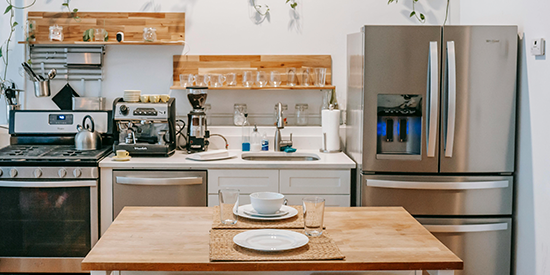From cooling our food to cooling our homes, plastic crystals could help us chill without warming the planet
Media release
As our world heats up and the environmental impact of cooling devices becomes a serious concern, new Australian research offers a crystal-clear solution.
Professor Jenny Pringle from Deakin University's Institute for Frontier Materials (IFM) leads a Deakin/Monash research team who are developing a technology that could transform how fridges and air conditioners operate, making them more energy efficient and climate friendly.
Published in the international journal Science, this world-first research outlines how organic ionic plastic crystals (OIPCs) can be used as an alternative to hazardous refrigeration gases.
Professor Pringle said that conventional refrigeration and air conditioning devices are energy intensive and use gases that are extremely damaging when they leak into the environment.
‘These appliances get their cooling power by circulating a liquid through the device, which absorbs heat and causes chilling through a cycle of evaporation and condensation. But these liquids can contribute to the greenhouse effect when they leak into the atmosphere,’ said Professor Pringle.
‘Improving the efficiency of cooling devices and using climate friendly materials is vital for decreasing the environmental impacts of cooling technologies.
‘Our research demonstrates that OIPCs are an exciting new class of solid-state, environmentally friendly material for cooling applications that open pathways to create more high energy capacity materials.’
OIPCs are ‘plastic crystals’ – crystals that transform under pressure, absorb heat and cool their surroundings. Their heat-sucking ability kicks in at temperatures from -37°C (-34.6°F) to 10°C (50°F), a suitable range for household refrigerators, freezers and air conditioners.
Professor Pringle and her colleagues have also recently discovered other OIPCs that demonstrate cooling potential.
‘We want to explore these new OIPCs to understand which ion combinations produce large, low temperature transitions and use that knowledge to design even better, sustainable refrigeration materials.
‘Our research has uncovered an exciting new class of materials that could change how fridges and air conditioners are powered with positive benefits for our planet and household budgets.
‘We're excited to collaborate with industry to expand and test this technology and realise its full commercial application.'
Discover more about Professor Pringle and her research.

